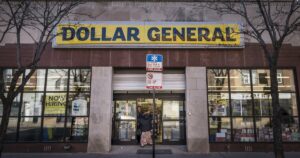by Jordan Zakarin
Starbucks is closing 16 stores throughout the country, including two stores with unionized workforces and another awaiting election results. The company cited security concerns as the primary reason behind the closings, which were announced alongside details of CEO Howard Schultz’s “reinvention” of Starbucks.
The closings mark the latest in a string of shutdowns and shake-ups that have rocked Starbucks and its workforce since Schultz returned to the company in April. This round of changes will impact workers in Los Angeles, Portland, Philadelphia, Washington, DC, and Seattle. Both unionized stores are located in Seattle: Union Station and E. Olive Way.
Workers at the shuttered locations will be “given the opportunity to transfer to a neighboring store,” Reggie Borges, a spokesperson for Starbucks, told More Perfect Union.
While workers can request to be transferred to a particular store, their next workplace will ultimately be decided by management. Those previously employed at the shuttered union locations, both of which are in Seattle, face a more uncertain future. That includes several new employees that had just been hired at those unionized stores.
“We will engage in bargaining with the union with the hope that we reach an agreement that gives all partners the ability to have continuous employment with no changes in benefits or pay or their average hours worked,” Borges said. “If we get an agreement, partners will be able to transfer to agreed upon stores.”
In June, Starbucks closed a unionized store in Ithaca, NY and promised to negotiate with workers about their future. A month later, workers are still waiting for Alan I. Model, the anti-union lawyer working on behalf of Starbucks, to return from a two-week vacation to continue what have thus far been sporadic negotiations. In the meantime, workers continue to go unpaid, and have been struggling to keep up with bills.
“The fact that Starbucks’ allegedly only available lawyer can call a two-week hiatus to go on vacation while workers are left essentially jobless is, frankly, very disrespectful,” says Evan Sunshine, a leader at the shuttered Ithaca store. “This break, along with their repeated tardiness to our bargaining sessions, tells us that they view our time as less valuable than their own.”
Should workers from those unionized Seattle or Ithaca stores resume work at a non-union location before any deal is struck, they’d likely lose their rights to bargain and be effectively no longer recognized as union members.
In a video conference to break the news, regional manager Regional Manager Nica Tovey told workers that the closures were a last resort, according to employees that watched the stream.
“Regional Manager Nica Tovey told us in a virtual meeting that our store closed for safety reasons,” says Erin Bray, a worker at the Union Station store. “She also said this was basically a last resort because they had already tried everything to mitigate the problem with incidents such as more staff and guards — both lies.”
Workers at the two unionized stores suggest that their locations were far less dangerous than other, still-open stores where they previously worked. Numbers cited by the company were artificially inflated, Bray says.
“Starbucks told us that in order to keep security [guards], we should be logging as many incidents as we can to justify it, so often small things get logged, such as someone taking too long in the bathroom or someone being asked to leave for swearing,” another worker told More Perfect Union. “Compare that to when I worked at First and Pike, when I would log two to four incidents a day that were larger, such as theft or drug use in the store.
“I know a lot of stores nearby have similar incident reports to us,” they added, “such as Broadway and Denny, that aren’t being closed.”
Just last month, Starbucks shut down three marquee stores in Seattle, including the First and Pike store, and reopened them as a “Heritage Market.” Workers at those stores were told they could re-interview for their old jobs at the re-opened stores, but after they held a protest, only one union supporter was offered employment at the new configuration. The rest were offered the opportunity to transfer to new stores; some wound up at stores that were just shuttered on Monday.
Members are now hanging in limbo, hoping to transfer to one of the four unionized stores in the district.
“It’s really up to whether there’s an open position, so it truly can be anywhere within the area,” another worker said. “Especially closing multiple stores at once, I’m sure a lot of people are just going to be sent to stores that need staff rather than make accommodations for everyone.”
Starbucks is currently a defendant in a case brought by the NLRB, which accused the company of more than 200 unfair labor violations. The trial began on Monday.



